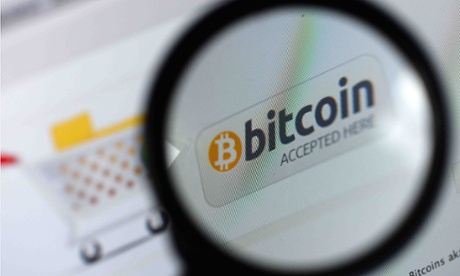Putting my money where my mouth is, I am going to make a small purchase, report on my experiences.
JZ
____

Bitcoin hits $700 high as Senate stages hearing on virtual currency
US officials discuss 'potential to promote more efficient global commerce' but acknowledge 'challenges to law enforcement'
 Bitcoin is under scrutiny by the Securities and Exchange Commission and the Treasury as well as the legal authorities. Photograph: Jens Kalaene/DPA/Corbis
Bitcoin is under scrutiny by the Securities and Exchange Commission and the Treasury as well as the legal authorities. Photograph: Jens Kalaene/DPA/Corbis
Bitcoin hit new highs on Monday, as the Senate held its first hearing on the controversial virtual currency.
The currency topped $700 on the MT Gox exchange, where it is traded, as the Senate discussion began. In April the currency hit a high of $266. Two years ago, Bitcoin was valued at $20.
Before the meeting Federal Reserve chairman, Ben Bernanke, gave his cautious blessing to the currency. In a letter to the Senate homeland security and government affairs committee, Bernanke said such currencies “may hold long-term promise, particularly if the innovations promote a faster, more secure and more efficient payment system”.
But the Fed chair also warned that he had little power to regulate online currencies.
“Although the Federal Reserve generally monitors developments in virtual currencies and other payments system innovations, it does not necessarily have authority to directly supervise or regulate these innovations or the entities that provide them to the market,” he said.
The hearing before the Senate committee was entitled Beyond Silk Road: Potential Risks, Threats and Promises of Virtual Currencies. Silk Road was an online black market known as “Amazon for drugs” that used Bitcoin for transactions and was closed by the FBI in October. Bitcoins can be traded anonymously and trades are difficult to track.
Law enforcement officials and others testified about the dangers of the currency at the hearing but did not announce any new initiatives and stopped short of calling for new laws. Mythili Raman, the acting assistant attorney general of the Justice Department, said virtual currencies “offer legitimate financial services and have the potential to promote more efficient global commerce”.
"We have also seen, however, that certain aspects of virtual currencies appeal to criminals and present a host of new challenges to law enforcement," she said. Raman said that their anonymous nature and the impossibility of reversing transactions made virtual currencies highly attractive to criminals while making it difficult for law enforcement to “follow the money”.
Raman said there were clearly legitimate uses for virtual currencies but they needed careful vigilance. “Our experience in the last few years has shown there is good reason for that vigilance,” she said.
Ernie Allen, the president and chief executive of the International Centre for Missing and Exploited Children, told the hearing of his concerns about the anonymous nature of Bitcoin.
“For the past year I have consulted with law enforcement and financial experts worldwide. While much of the evidence is still anecdotal, there is consensus that commercial child pornography, sexual exploitation, sex trafficking and other crimininal enterprises are increasingly moving to a new unregulated, unbanked digital economy,” said Allen.
Jerry Brito, senior research fellow at the Mercatus Center at George Mason University, said the Bitcoin technology was not unlike other emerging technologies, like 3D printing, which could be used for good, like cheaply make prostheses, or bad, like undetectable firearms. “The challenge for policymakers is to address the risks posed by emerging technologies while doing no harm to the innovative potential of that technology,” he said.
Patrick Murck, general counsel for the lobby group Bitcoin Foundation, argued that the currency does not “pose a unique or unsolvable challenge to law enforcement or existing regulatory structures”. He said Bitcoin innovation would move overseas if it was too
"Bitcoin can facilitate private and anonymous transactions, which are resistant to oversight and control," Murck said. "This by no means implies that using Bitcoin can or should provide anyone immunity from the law.
“Though it has sometimes been portrayed as such in careless media stories, Bitcoin is not a magic cloaking device that allows criminal actors free reign. It does offer enhanced privacy protections, however, which is the just desert of hundreds of millions of law-abiding Americans and billions of law-abiding people worldwide.”
No comments:
Post a Comment
All comments are welcome... especially any tips regarding corruption of the courts in Los Angeles. Anonymous tips are fine. One simple way to do it is from internet cafes, etc.